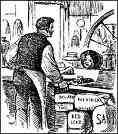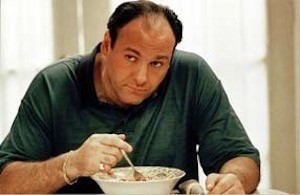Chris Elliott, the founder of the Institute for Global Food Security, a laboratory in Northern Ireland that tests food from all over the world in order to uncover fraud, told NPR’s Rachel Martin, “Many, many forms of food fraud manifest themselves in different parts of the world virtually every day of the week. … It’s absolutely cheating. But it goes beyond cheating — this is criminal activity, very well organized criminal activity, with people making a huge amount of money out of fraud in food systems.”
 “The world trade in groceries is about $11 trillion. And the level of fraud is somewhere between 5 and 10 percent of that.”
“The world trade in groceries is about $11 trillion. And the level of fraud is somewhere between 5 and 10 percent of that.”
“Quite often, the person who is caught is the retailer. And they aren’t always the fraudsters — often they have been cheated themselves. But what happens is whenever they are caught, the reputation that goes with that is quite enormous. And many, many companies that have been involved or implicated in food fraud have seen their profits drop dramatically.”
“It’s extremely difficult for consumers to decide what’s genuine and what’s fake — because I’ll tell you the fakes are very, very good. We as consumers are reliant on the government, and on the food industry to protect us from fraud.
 “My advice to people is always buy your food from bonafide sources. If you buy your stuff from the back of vans and so forth, you can expect what you’ll get. And the second thing is if you buy something that’s too good to be true price-wise, it probably is.”
“My advice to people is always buy your food from bonafide sources. If you buy your stuff from the back of vans and so forth, you can expect what you’ll get. And the second thing is if you buy something that’s too good to be true price-wise, it probably is.”
